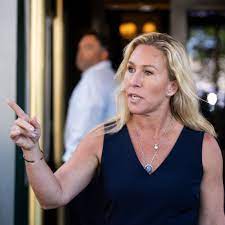Zelensky Suggests NATO Could End Hot Phase Of War, Open To Territorial Concessions
Ukrainian President Volodymyr Zelensky has proposed that NATO protection could help bring an end to the ongoing conflict with Russia.
In advance of Donald Trump's inauguration, Zelensky hinted at a potential shift in Ukraine's war strategy, suggesting that NATO guarantees could end the active fighting, while his country would consider diplomatic efforts to regain Russian-occupied territories, as Breitbart reports.
In one of his first major interviews with Western media after Trump's victory in the November 2024 U.S. election, Zelensky stated that NATO's protection of Ukraine's current territory could be crucial to ending the “hot phase” of the war with Russia.
He stressed the importance of securing NATO's involvement quickly to de-escalate the conflict. Zelensky also signaled that Ukraine could seek to reclaim territories currently held by Russia through diplomatic means once the active phase of fighting concludes.
Zelensky’s comments represent a significant shift in his previously firm stance on territorial recovery, marking the first time he publicly indicated a willingness to make territorial concessions in exchange for peace.
Earlier in 2024, the Ukrainian president proposed a "victory plan" aimed at returning Ukraine to its 1991 borders, which would include Crimea, but he acknowledged that regaining lost territory by military means was no longer viable.
Zelensky's Acknowledgment of NATO Membership Challenges
Zelensky also noted that while he still believes Ukraine should join NATO, this move would likely require ceding the territories currently under Russian control, which would conflict with Ukraine's constitution. The Ukrainian leader’s remarks underscore the complex political and legal challenges surrounding NATO membership for Ukraine.
Key European leaders, including German Chancellor Olaf Scholz and Hungarian Prime Minister Viktor Orbán, have expressed reservations about admitting a nation in active conflict over its borders into NATO. These concerns add to the broader debate surrounding the future of Ukraine’s NATO aspirations, especially in light of Russia’s warnings that the alliance’s expansion into Ukraine would cross a “red line.”
Despite this, Zelensky has expressed a desire to continue building strong relations with Trump. The Ukrainian president confirmed that the two leaders had held a warm and constructive conversation, describing it as an essential first step in establishing future dialogue.
Looking for Direct Communication with Trump
Zelensky emphasized the importance of working directly with Trump, noting that there were differing opinions within the president-elect’s circle that could undermine communication. He expressed a clear desire to maintain unfiltered and open lines of communication with Trump, believing that such direct engagement was necessary for meaningful progress.
"I want to work with him directly because there are different voices from people around him," Zelensky explained. "We need not to allow anybody around to destroy our communication." He cautioned that any disruptions in their discussions would be detrimental to both sides and urged the development of a new model for communication.
The conversation with Trump marks a critical moment in Ukraine’s ongoing efforts to manage the war and its diplomatic relationships. While Zelensky’s proposal for NATO protection and territorial diplomacy could set the stage for future negotiations with Russia, the role of the U.S. and its leadership remains central in shaping Ukraine’s path forward.
Potential Framework for Peace with Russia
Zelensky’s willingness to entertain the idea of territorial concessions represents a potential new framework for peace negotiations with Russian President Vladimir Putin. Putin has long opposed Ukraine’s NATO membership, viewing it as a direct threat to Russia’s sphere of influence. The possibility of Ukraine forgoing immediate NATO membership in exchange for a ceasefire could change the dynamics of these talks.
The Ukrainian leader's comments suggest that his contry may no longer rely solely on the support of its European allies, especially those with less favorable views of Ukraine’s NATO bid. He may instead need to work more closely with the incoming Trump administration, which could offer a different approach to the conflict and its resolution.
While the future of NATO's involvement in the war remains uncertain, Zelensky’s willingness to make tough decisions signals a shift in Ukraine's approach. His proposal, if accepted by Western leaders and Putin, could pave the way for a diplomatic solution that ends the war. However, the political and military challenges ahead remain immense, with both sides deeply entrenched in their positions.
Zelensky’s Vision for Ukraine’s Future
As the war enters its second year, Zelensky’s comments reflect a broader effort to explore avenues for peace while maintaining Ukraine’s sovereignty and territorial integrity. The Ukrainian president’s call for a new model of communication with Trump, combined with his openness to diplomatic negotiations, signals a potential turning point in the conflict.
Despite the challenges and complexities involved, Zelensky’s approach may offer a glimmer of hope for those seeking an end to the ongoing violence in Ukraine. However, the road to peace will undoubtedly require significant compromises from all sides.
In the coming weeks, the Ukrainian president will continue to navigate the political landscape, balancing international pressure with domestic concerns as he works to secure a future for Ukraine free from war.






